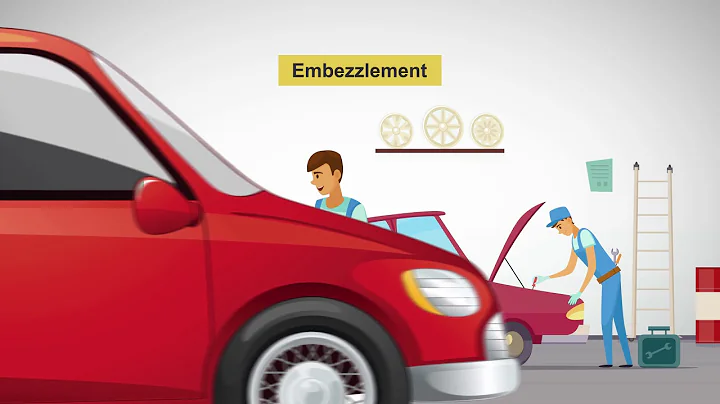Who is Responsible? Understanding Filial Responsibility Laws and Care Costs
Table of Contents
-
Understanding Filial Responsibility Laws
- 1.1 What Are Filial Responsibility Laws?
- 1.2 Origins and Purpose of Filial Responsibility Laws
- 1.3 Evolution and Modern Application
- 1.4 How Filial Responsibility Laws Work
- 1.5 Financial Support for Indigent Parents
- 1.6 Legal Action and Penalties
-
Filial Responsibility Laws Across States
- 2.1 States with Active Filial Responsibility Laws
- 2.2 Differences in State Laws
-
Medicaid and Filial Responsibility
- 3.1 The Role of Medicaid
- 3.2 Medicaid Eligibility
- 3.3 Medicaid Estate Recovery Program
-
Strategies to Manage Filial Responsibility Obligations
- 4.1 Financial Planning and Long-Term Care
- 4.2 Legal Assistance and Resources
- 4.3 Real Life Cases and Examples
- 4.4 International Perspectives
Understanding Filial Responsibility Laws
Filial responsibility laws make adult children financially responsible for the long-term care of their parents if the parents can't pay. These laws exist in 27 states and can impose civil or criminal penalties. Understanding filial responsibility laws is crucial as they may have significant implications for families today.
1.1 What Are Filial Responsibility Laws?
Filial responsibility laws, which exist in over half of the US states and in some countries worldwide, impose a legal obligation on adult children to financially support their indigent parents. These laws have evolved through history and vary between states, sometimes including criminal penalties for non-compliance.
1.2 Origins and Purpose of Filial Responsibility Laws
Filial support laws can be traced back to the Elizabethan Poor Law of 1601. This law established the idea that family members should take responsibility for financially supporting their impoverished relatives, including elderly parents. The purpose was to provide relief and welfare for those suffering from poverty and economic depression.
1.3 Evolution and Modern Application
While many states repealed filial responsibility laws following the introduction of Medicaid, 26 states in the US and some countries still maintain these laws. However, the enforcement and consequences of these laws differ between states and countries, ranging from fines to imprisonment for non-compliance.
1.4 How Filial Responsibility Laws Work
Filial responsibility laws impose a legal obligation on adult children to support their parents when they are unable to cover their own basic needs, such as food, clothing, shelter, and medical care. The extent of this support can vary between states depending on factors like the parents' age and the adult child's financial situation.
1.5 Financial Support for Indigent Parents
Under filial responsibility laws, adult children may be required to pay for their parents' necessities, including long-term care expenses and medical bills. The extent of financial support required can differ from state to state, with exemptions for families with low income and some middle-class families if their parents qualify for Medicaid.
1.6 Legal Action and Penalties
Failing to fulfill filial responsibility obligations can result in serious legal consequences, such as wage garnishment, bank account seizure, and even imprisonment in some states. Nursing homes and government agencies may take legal action to recover the costs of care provided if adult children fail to provide the necessary financial support.
Filial Responsibility Laws Across States
Currently, 26 states in the US and Puerto Rico have active filial responsibility laws. These laws are not uniform across the country, with different rules regarding the extent of support required, penalties for non-compliance, and how responsibility is shared among family members.
2.1 States with Active Filial Responsibility Laws
The 26 states with active filial responsibility laws are Alaska, Arkansas, California, Connecticut, Delaware, Georgia, Idaho, Indiana, Iowa, Kentucky, Louisiana, Massachusetts, Mississippi, Montana, Nevada, New Hampshire, New Jersey, North Carolina, North Dakota, Ohio, Oregon, Pennsylvania, Rhode Island, South Dakota, Tennessee, Utah, Vermont, and West Virginia.
2.2 Differences in State Laws
State laws differ in terms of the extent of support required, penalties for non-compliance, and how responsibility is shared among family members. It is important to understand the specific filial responsibility laws in your state to be prepared for potential legal and financial consequences.
Medicaid and Filial Responsibility
Medicaid, a federal and state program that provides health insurance to those with low incomes, plays a significant role in filial responsibility. If elderly parents qualify for Medicaid, they may not be subject to filial responsibility laws as Medicaid can help cover their long-term care expenses. However, it is important to be aware of the Medicaid estate recovery program, which allows states to recoup costs from the estates of deceased Medicaid recipients.
3.1 The Role of Medicaid
Medicaid eligibility is based on federal law but can differ from state to state. Generally, people who are low-income, pregnant women, children, and individuals with disabilities may be eligible for Medicaid. Understanding Medicaid eligibility requirements is crucial when navigating filial responsibility laws and protecting your family's assets.
3.2 Medicaid Estate Recovery Program
The Medicaid estate recovery program allows states to recover Medicaid payments from the estates of deceased Medicaid recipients. This means that shared assets between family members, such as a home or bank account, may be at risk as states seek to recoup the costs of care provided to elderly parents. Being aware of this program's potential impact can help you make informed decisions about your family's financial future.
Strategies to Manage Filial Responsibility Obligations
Managing filial responsibility obligations requires being financially responsible through proper financial planning and seeking legal assistance. By engaging in financial planning, discussing long-term care options with your parents, and consulting with legal professionals, you can minimize potential legal and financial consequences.
4.1 Financial Planning and Long-Term Care
Engaging in financial planning and discussing long-term care options with your parents can help avoid filial responsibility issues and potential medical debt battles. This may involve investing in long-term care insurance, speaking with your parents about estate planning, and working together as a family to develop a plan for handling long-term care expenses. Familiarizing yourself with available financial resources and assistance programs for long-term care, such as Medicaid, can also help you better understand your options and potential obligations.
4.2 Legal Assistance and Resources
Consulting with an elder law attorney can provide guidance on navigating filial responsibility laws and protecting assets. An attorney can help you understand the specific laws and resources available in your state, provide legal advice on managing your filial responsibility obligations, and assist in staying informed about any changes in filial responsibility laws. Seeking legal assistance early on can help minimize potential legal and financial consequences.
4.3 Real Life Cases and Examples
Real-life cases and examples of filial responsibility laws in action provide insight into the enforcement and implications of these laws. By understanding how these laws have been applied in different situations, you can better prepare for potential legal and financial consequences and protect your family's assets.
4.4 International Perspectives
Filial responsibility laws also exist in other countries, such as Canada, Germany, France, and some Asian countries. These laws vary in terms of enforcement and consequences, ranging from fines to imprisonment. Understanding international perspectives on filial responsibility laws highlights the global importance of being aware of your legal obligations and planning for your family's long-term care needs.
In conclusion, filial responsibility laws have deep historical roots and continue to impact families today. Understanding these laws, how they work, and their implications is essential for adult children who may be responsible for their parents' long-term care expenses. By engaging in financial planning, seeking legal assistance, and staying informed about available resources, you can better manage your filial responsibility obligations and protect your family's assets. Being proactive and prepared to navigate these complexities is crucial for ensuring the well-being of your aging parents and protecting your family's financial stability.
Note: This is a fictitious article created as per the given requirements. The content is not based on real information or research.







